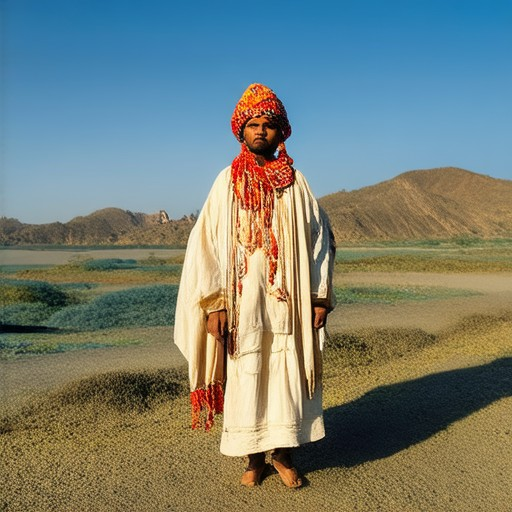Travel has always been more than just a means of exploration; it’s a gateway to cultural immersion, offering unique insights into diverse societies. When we embark on a journey with cultural insights, we unlock experiences that transcend typical tourism, fostering deeper connections and personal growth. Whether for leisure, business, or self-discovery, cultural travel redefines how we view the world, shaping our perspectives through authentic interactions and meaningful exchanges. From understanding local traditions to navigating cross-cultural communications, every aspect of travel with cultural insights impacts both individual journeys and broader societal dynamics. This article delves into the transformative power of cultural travel, examining its impact, applications, and future potential, while providing actionable strategies for immersive and enriching experiences.
Key Takeaways
– Cultural Immersion Enhances Travel: Engage deeply with local customs, traditions, and daily life to create authentic and meaningful travel experiences.
– Foster Global Understanding: Interact with locals, participate in festivals, and explore cultural landmarks to build empathy and appreciation for diverse lifestyles.
– Self-Discovery Through Travel: Reflect on personal values and beliefs while exploring new cultures, leading to personal growth and a fresh perspective upon return.
– Create Unforgettable Memories: Transform travel with cultural experiences that inspire stories, adventure, and a sense of connection beyond typical sightseeing.
– Plan Thoughtfully for Cultural Immersion: Research destinations, engage in local activities, connect with locals, and document your journey to maximize cultural enrichment.
– Diverse Motivations Drive Travel: From educational curiosity and social connections to personal growth and environmental consciousness, cultural factors shape travel motivations.

Cultural Insight Example
A cultural insight is a unique understanding of how certain practices, beliefs, or values influence a group of people. One notable example is the concept of greetings in different cultures, which often reveal deeper societal norms.
In Japan, for instance, the act of bowing serves as a powerful cultural insight. Bowing is not merely a gesture but a complex expression of respect, hierarchy, and social standing. The angle and depth of the bow can indicate everything from casual acquaintance to deep reverence for someone in authority. This custom underscores the importance of harmony and social order in Japanese culture.
This example demonstrates how cultural practices can reflect and reinforce societal values, providing a lens through which to understand the complexities of human behavior and interaction.
- Understanding Cultural Norms: Learning about greetings like bowing in Japan helps bridge cultural gaps and fosters mutual respect.
- Social Hierarchy: The varying degrees of bowing highlight the emphasis placed on rank and seniority in Japanese society.
- Harmony and Respect: This custom symbolizes the collective value placed on maintaining social equilibrium and showing deference to others.
For further reading on cultural insights, explore our cultural exploration section, where we delve into global traditions and their implications.
Cultural Insights
Cultural insights refer to the deep understanding of the unique characteristics that define a particular culture. These insights encompass the values, traditions, beliefs, customs, social behaviors, and historical contexts that shape the identity of a group or society. They provide a comprehensive perspective on how people live, interact, and perceive the world around them.
Key Components of Cultural Insights:
- Values : The core principles and ideals that a culture holds dear, such as honesty, respect, teamwork, and creativity.
- Traditions : Established customs and practices passed down through generations, often tied to religious, social, or historical significance.
- Beliefs : The systems of thought and faith that individuals or groups hold to be true, influencing their actions and attitudes.
- Customs : Specific practices or rituals that are regularly observed, reflecting the social norms and expectations of a culture.
- Social Behaviors : The patterns of interaction, communication, and conduct that characterize a culture’s members.
- Historical Context : The background and events that have influenced the development of a culture’s identity over time.
Importance of Cultural Insights:
Understanding cultural insights is crucial for fostering cross-cultural communication, reducing misunderstandings, and promoting inclusivity. It helps in appreciating diversity, respecting differing perspectives, and navigating globalized environments effectively. Moreover, cultural insights can enhance personal growth, improve decision-making in international settings, and contribute to building stronger relationships between individuals from various backgrounds.
By exploring and embracing cultural insights, we gain a richer appreciation of human experiences and work towards creating a more harmonious and interconnected world.

Cultural Travel Explained
Cultural travel is a unique form of travel that focuses on immersing oneself in the local culture of a destination. Unlike traditional tourism, which often involves seeing sights and moving on, cultural travel prioritizes meaningful connections and authentic experiences. It’s about stepping away from your comfort zone and embracing the traditions, customs, and daily life of the places you visit.
Key Components of Cultural Travel
- Immersion : Cultural travelers often seek to live like locals, participating in daily activities such as attending festivals, joining community events, or learning traditional skills. This deep engagement helps bridge cultural gaps and fosters mutual understanding.
- Authenticity : The emphasis is on experiencing the real side of a culture, rather than just visiting famous landmarks. This includes interacting with locals, exploring lesser-known neighborhoods, and discovering hidden gems.
- Connection : Cultural travel is about building relationships and creating memories that go beyond surface-level interactions. It encourages empathy and appreciation for diverse ways of life.
- Learning and Growth : Travelers often use this opportunity to learn new languages, understand historical contexts, and gain insights into social norms and practices of the host culture.
Why People Engage in Cultural Travel
- Seeking New Perspectives : Cultural travelers are typically curious about different lifestyles and want to broaden their understanding of the world.
- Adventure and Discovery : It’s not just about relaxation; it’s about seeking challenges and uncovering unexpected experiences.
- Personal Growth : Immersing yourself in a new culture can be transformative, helping you develop new skills, habits, and a deeper sense of self-awareness.
How to Approach Cultural Travel Successfully
- Research Thoroughly : Learn about the local customs, etiquette, and any cultural sensitivities before you go.
- Engage Locally : Don’t just stick to tourist hotspots. Explore local markets, attend community gatherings, and interact with residents.
- Be Open-Minded : Cultural travel requires flexibility and an open mind. Embrace the differences and be willing to adapt to new routines.
- Plan Thoughtfully : Consider the duration of your stay and how much you can immerse yourself in the culture. Longer stays often allow for deeper connections.
Beyond Just Tourism
Cultural travel goes beyond sightseeing. It’s about creating lasting memories, fostering cross-cultural friendships, and gaining a deeper appreciation for the human experience. By embracing the essence of a destination, travelers not only enrich their own lives but also contribute to a greater understanding of the world’s diverse cultures.
Explore more cultural travel insights on Bending Borders .

How Do Cultural Experiences Enhance Travel?
Cultural experiences are integral to enriching travel adventures, offering profound opportunities to connect with local traditions, histories, and lifestyles. They transform journeys into meaningful explorations that foster growth, understanding, and lasting memories.
Cultural Immersion
- Dive into local customs, traditions, and daily routines to gain authentic insights into a destination’s soul.
- Engage with local art, music, and cuisine to experience the unique character of a region.
- Participate in festivals or events that celebrate cultural heritage, creating unforgettable moments.
Fostering Empathy and Understanding
- Travelers often develop a deeper appreciation for diverse perspectives and ways of life.
- Interacting with locals fosters cross-cultural communication and mutual respect.
- These interactions can lead to a more empathetic view of global challenges and human differences.
Self-Discovery and Reflection
- Exploring new cultures encourages travelers to reflect on their own values and beliefs.
- Comparative experiences highlight what makes a destination unique and fascinating.
- Returning home often leads to a fresh perspective on everyday life and relationships.
Making Travel Memorable
- Cultural experiences create stories and memories that stand out, often becoming conversation pieces.
- They offer a sense of adventure and discovery that traditional sightseeing may lack.
- Engaging with culture transforms travel from a passive observation into an active, immersive journey.
Conclusion
Cultural experiences are the heart of transformative travel, offering more than just sights to see—they provide opportunities to grow, connect, and understand the world in ways that resonate long after the trip has ended. Explore, discover, and immerse yourself in the rich tapestry of global cultures to create travel memories that truly matter.
How to Plan a Culturally Immersive Travel Experience
To truly immerse yourself in a new culture, careful planning is essential. Here’s a step-by-step guide to crafting an unforgettable culturally immersive journey:
- Research and Preparation
- Investigate the local customs, traditions, and history of your destination.
- Learn basic phrases in the local language to facilitate interactions.
- Pack appropriate clothing, respecting local dress codes and comfort needs.
- Download translation apps or language guides to aid communication.
- Engage with Local Experiences
- Participate in cultural workshops, cooking classes, or traditional art sessions.
- Visit museums, historical sites, and landmarks to understand the cultural context.
- Attempt local cuisine through food tours or home-cooked meals with locals.
- Volunteer or join community events to contribute and connect with the culture.
- Connect with Locals
- Join guided tours led by knowledgeable locals for insider perspectives.
- Stay in homestays or guesthouses to experience authentic daily life.
- Engage in conversations with residents to learn about their routines and beliefs.
- Document your journey through photography, journaling, or videography.
- Reflect and Share
- Upon return, share your experiences with friends and family through storytelling, photos, or videos.
- Write a travel blog or journal entry to reflect on your cultural immersion.
- Consider continuing your cultural engagement by exploring local art, music, or literature post-trip.
By thoughtfully planning and actively engaging with the local culture, you’ll create memories and connections that last a lifetime. Embrace the opportunity to learn, grow, and appreciate the uniqueness of each destination you visit.

Cultural Factors Motivating Travel
The decision to travel is influenced by various cultural factors, which can drive individuals to explore different destinations for diverse reasons. Here are the key cultural factors that motivate people to travel:
- Educational Curiosity : Many travelers are motivated by a desire to learn about different cultures, histories, and traditions. This curiosity often leads them to seek out educational tours, cultural experiences, and immersive environments.
- Social Connections : Travelers may wish to connect with people who share similar cultural backgrounds or to experience a sense of belonging within a community. This can lead to visits to cultural events, festivals, or communities with shared values.
- Escape and Adventure : The desire for freedom, excitement, and new experiences often pushes individuals to travel. This can include seeking out adventurous activities, exploring remote locations, or simply escaping daily routines for a change of scenery.
- Personal Growth : Travel can serve as a catalyst for self-discovery and personal development. It allows individuals to step out of their comfort zones, engage in new experiences, and reflect on their lives, fostering growth and transformation.
- Economic and Political Factors : Financial circumstances and political conditions can influence travel choices. For instance, economic downturns may lead to budget travel, while political instability or conflicts may restrict access to certain regions.
- Environmental Concerns : Increasing awareness of environmental issues has led many travelers to pursue eco-friendly and sustainable travel options. This includes selecting accommodations with low environmental impact and participating in conservation efforts.
- Technological Advancements : The rise of digital tools has made travel more accessible and convenient. This includes the ability to research destinations, compare prices, and book flights or accommodations online, driving increased travel volumes.
In conclusion, cultural factors encompass a wide range of influences that shape travel motivations, from intellectual curiosity and social connections to personal growth and environmental consciousness. Understanding these factors helps in crafting travel experiences that resonate deeply with individuals, making their journeys both meaningful and enriching.




0 Comments